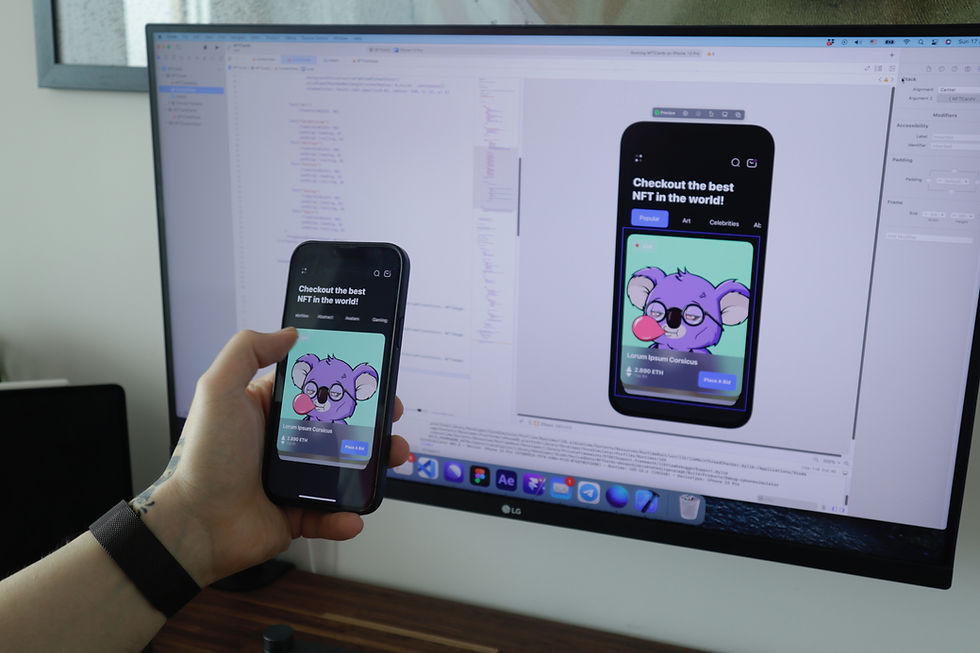How to Avoid Memory Leaks in Jetpack Compose
- Sep 13, 2023
- 3 min read

Jetpack Compose is a modern Android UI toolkit introduced by Google, designed to simplify UI development and create more efficient and performant apps. While it offers numerous advantages, like a declarative UI syntax and increased developer productivity, it's not immune to memory leaks.
Memory leaks in Android can lead to sluggish performance and even app crashes. In this blog post, we'll explore the possibilities of causing memory leaks in Jetpack Compose and common reasons behind them. We'll also provide code examples and discuss strategies to prevent and fix these issues.
Understanding Memory Leaks
Before diving into Jetpack Compose-specific issues, let's briefly understand what a memory leak is. A memory leak occurs when objects that are no longer needed are not released from memory, causing a gradual increase in memory consumption over time. In Android, this is typically caused by retaining references to objects that should be garbage collected.
How to Avoid Memory Leaks in Jetpack Compose
1. Lambda Expressions and Captured Variables
Jetpack Compose heavily relies on lambda expressions and function literals. When these lambdas capture references to objects, they can unintentionally keep those objects in memory longer than necessary. This often happens when lambdas capture references to ViewModels or other long-lived objects.
@Composable
fun MyComposable(viewModel: MyViewModel) {
// This lambda captures a reference to viewModel
Button(onClick = { viewModel.doSomething() }) {
Text("Click me")
}
}
In this example, the lambda passed to Button captures a reference to the viewModel parameter. If MyComposable gets recomposed, a new instance of the lambda will be created, but it still captures the same viewModel reference. If the old MyComposable instance is no longer in use, the captured viewModel reference will keep it from being garbage collected, potentially causing a memory leak.
To avoid this, you can use the remember function to ensure that the lambda captures a stable reference:
@Composable
fun MyComposable(viewModel: MyViewModel) {
val viewModelState by remember { viewModel.state }
Button(onClick = { viewModelState.doSomething() }) {
Text("Click me")
}
}
Here, remember is used to cache the value of viewModel.state. This ensures that the lambda inside Button captures a stable reference to viewModelState. As a result, even if MyComposable is recomposed, it won't create unnecessary new references to viewModel, reducing the risk of memory leaks.
2. Composable Functions and State
Composables are functions that can rebuild when their inputs change. If you're not careful, unnecessary recompositions can lead to memory leaks. Composable functions that create and hold onto state objects, especially those with a long lifecycle, can cause memory leaks.
@Composable
fun MyComposable() {
val context = LocalContext.current
val database = Room.databaseBuilder(context, MyDatabase::class.java, "my-database").build()
// ...
}
To mitigate this, prefer creating and closing resources within a DisposableEffect:
@Composable
fun MyComposable() {
val context = LocalContext.current
DisposableEffect(Unit) {
val database = Room.databaseBuilder(context, MyDatabase::class.java, "my-database").build()
onDispose {
database.close()
}
}
// ...
}
3. Forgetting to Dispose of Observers
Jetpack Compose's LiveData and State are commonly used for observing and updating UI. However, not removing observers correctly can result in memory leaks. When a Composable is removed from the UI hierarchy, you should ensure that it no longer observes any LiveData or State.
@Composable
fun MyComposable(viewModel: MyViewModel) {
val data = viewModel.myLiveData.observeAsState()
// ...
}
To address this, use the DisposableEffect to automatically remove observers when the Composable is no longer needed:
@Composable
fun MyComposable(viewModel: MyViewModel) {
DisposableEffect(viewModel) {
val data = viewModel.myLiveData.observeAsState()
onDispose {
// Remove observers or do necessary cleanup here
}
}
// ...
}
Conclusion
Jetpack Compose is a powerful tool for building modern Android user interfaces. However, like any technology, it's essential to be aware of potential pitfalls, especially regarding memory management.
By understanding the common causes of memory leaks and following best practices, you can create efficient and performant Compose-based apps that delight your users.



Comments